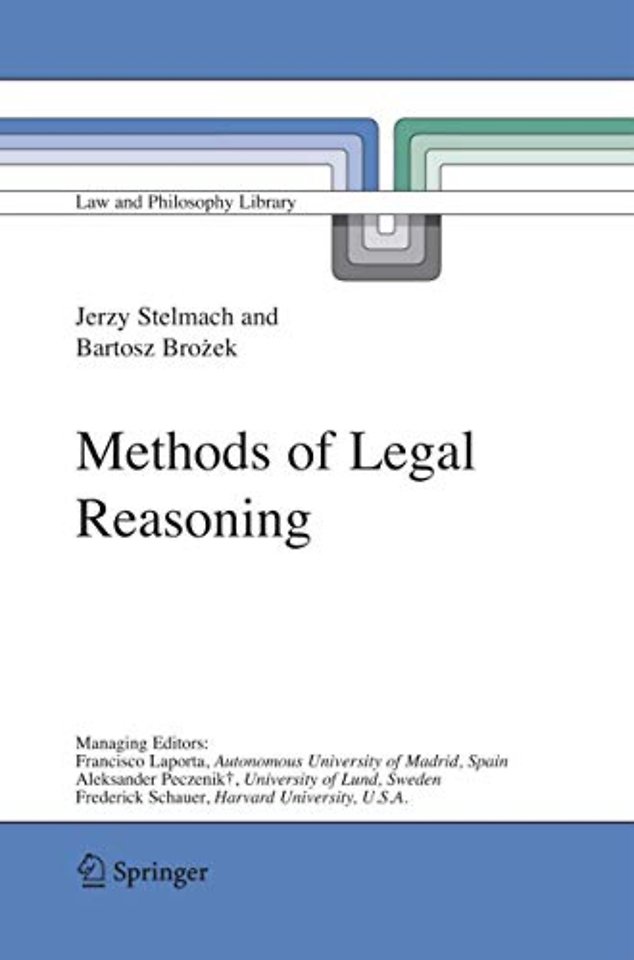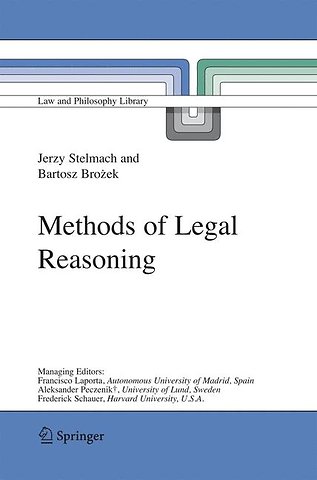Methods of Legal Reasoning
Samenvatting
Methods of Legal Reasoning describes and criticizes four methods used in legal practice, legal dogmatics and legal theory: logic, analysis, argumentation and hermeneutics. The book takes the unusual approach of discussing in a single study four different, sometimes competing concepts of legal method. Sketched this way, the panorama allows the reader to reflect deeply on questions concerning the methodological conditioning of legal science and the existence of a unique, specific legal method.
Specificaties
Inhoudsopgave
Net verschenen
Rubrieken
- aanbestedingsrecht
- aansprakelijkheids- en verzekeringsrecht
- accountancy
- algemeen juridisch
- arbeidsrecht
- bank- en effectenrecht
- bestuursrecht
- bouwrecht
- burgerlijk recht en procesrecht
- europees-internationaal recht
- fiscaal recht
- gezondheidsrecht
- insolventierecht
- intellectuele eigendom en ict-recht
- management
- mens en maatschappij
- milieu- en omgevingsrecht
- notarieel recht
- ondernemingsrecht
- pensioenrecht
- personen- en familierecht
- sociale zekerheidsrecht
- staatsrecht
- strafrecht en criminologie
- vastgoed- en huurrecht
- vreemdelingenrecht

